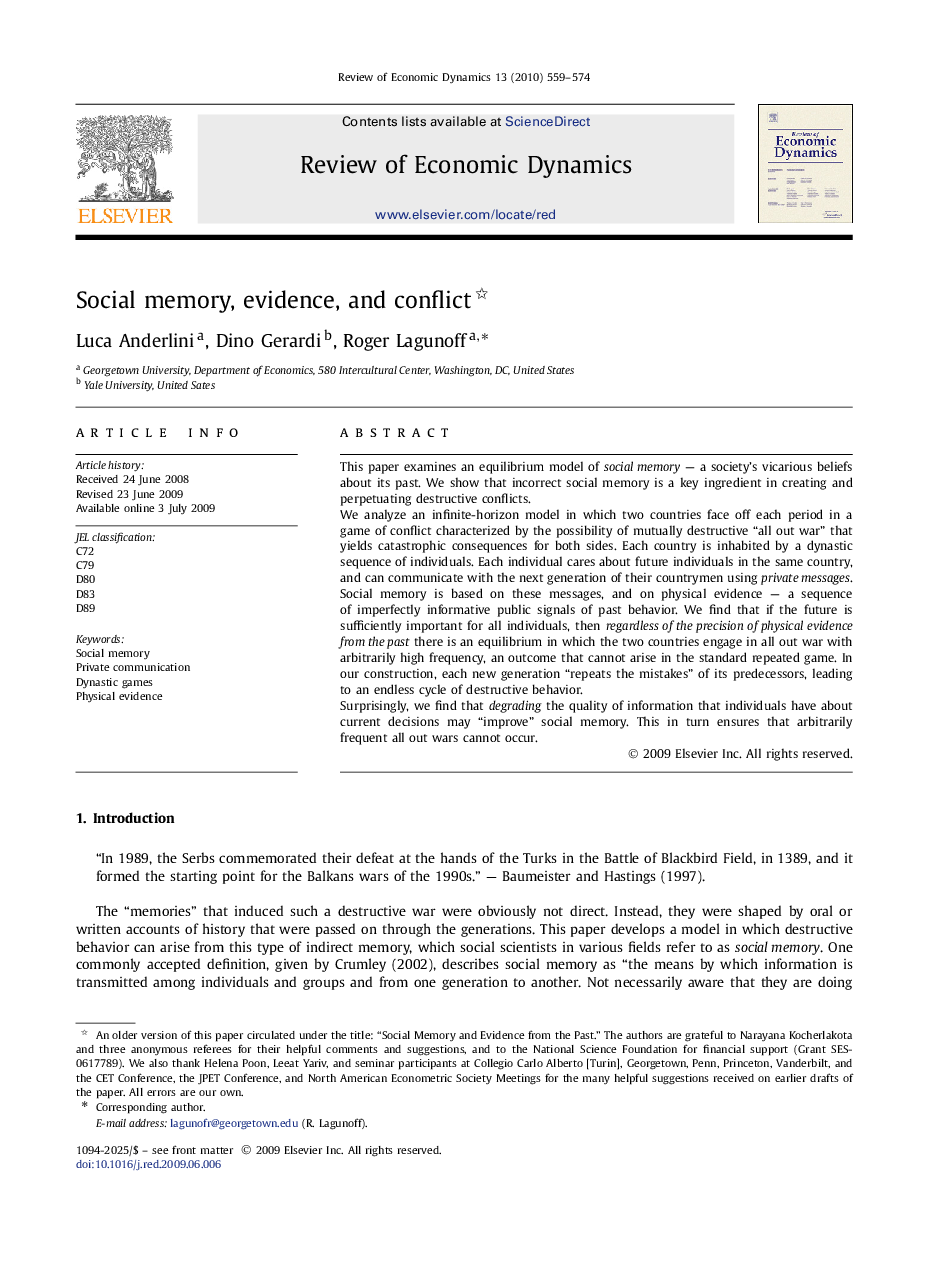| کد مقاله | کد نشریه | سال انتشار | مقاله انگلیسی | نسخه تمام متن |
|---|---|---|---|---|
| 987004 | 1480827 | 2010 | 16 صفحه PDF | دانلود رایگان |

This paper examines an equilibrium model of social memory — a society's vicarious beliefs about its past. We show that incorrect social memory is a key ingredient in creating and perpetuating destructive conflicts.We analyze an infinite-horizon model in which two countries face off each period in a game of conflict characterized by the possibility of mutually destructive “all out war” that yields catastrophic consequences for both sides. Each country is inhabited by a dynastic sequence of individuals. Each individual cares about future individuals in the same country, and can communicate with the next generation of their countrymen using private messages. Social memory is based on these messages, and on physical evidence — a sequence of imperfectly informative public signals of past behavior. We find that if the future is sufficiently important for all individuals, then regardless of the precision of physical evidence from the past there is an equilibrium in which the two countries engage in all out war with arbitrarily high frequency, an outcome that cannot arise in the standard repeated game. In our construction, each new generation “repeats the mistakes” of its predecessors, leading to an endless cycle of destructive behavior.Surprisingly, we find that degrading the quality of information that individuals have about current decisions may “improve” social memory. This in turn ensures that arbitrarily frequent all out wars cannot occur.
Journal: Review of Economic Dynamics - Volume 13, Issue 3, July 2010, Pages 559–574